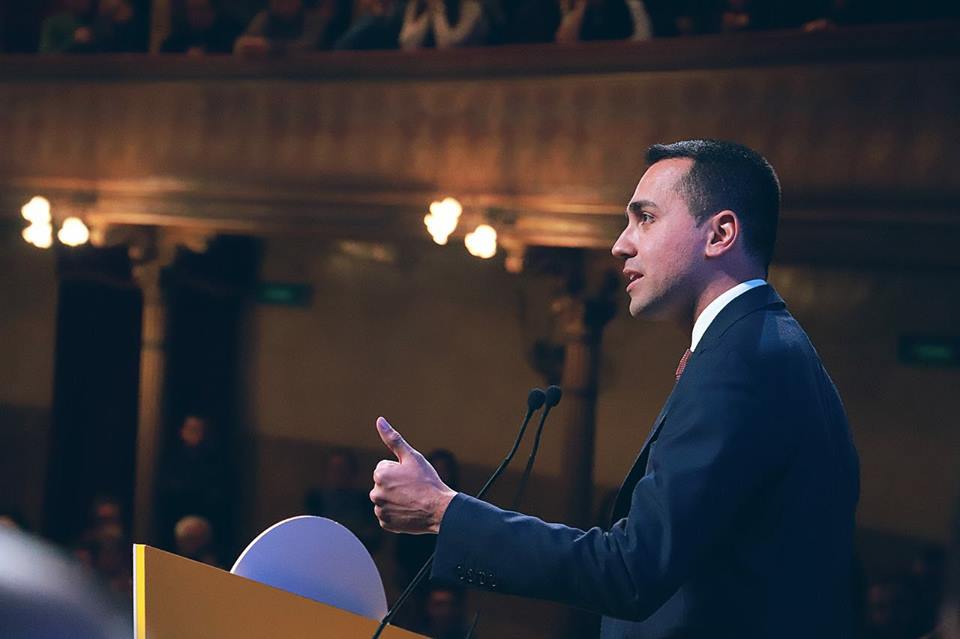News
Populist leader seeks more time to form Italy’s government

Luigi Di Maio, leader of the 5-Stars, gave the status report on the effort to give Italy a government after emerging from talks with President Sergio Mattarella, the head of state. (Photo: Luigi Di Maio/Facebook)
ROME — The leader of Italy’s euroskeptic 5-Star Movement asked Monday for more time to hammer out a coalition agreement with the head of a rival populist party and said he wants his voter base to have a say in any deal before a government is formed.
Luigi Di Maio, leader of the 5-Stars, gave the status report on the effort to give Italy a government after emerging from talks with President Sergio Mattarella, the head of state. Mattarella summoned Di Maio and League leader Matteo Salvini for an update more than 10 weeks after an inconclusive parliamentary election.
But the birth of Italy’s next administration continues to be a slow labour.
“We asked the president for more time to make a contract for government,” Di Maio told reporters after the talks at the Quirinal Palace.
He added that the terms of any deal with the League “will be put to our members through a vote online,” indicating the process of forming the next government might stretch out even longer.
The Movement, which bills itself as an alternative to traditional politics, makes its positions and candidates subject to review by registered supporters in online votes.
The coalition negotiations are aimed at “giving a government of change to this country,” Di Maio said. He described that as a government in which “the citizens take a step forward, the politicians take a step back.”
Any deal would be aimed at satisfying both Di Maio’s and Salvini’s largely different constituencies.
Both Salvini and Di Maio ran for premier in Italy’s March 4 parliamentary election. With neither willing to cede the premiership to the other, it was expected they would suggest that the president tap someone acceptable to them both to lead the coalition.
Di Maio said he and Salvini agreed “that we won’t publicly name names” of their choices for premier.
Salvini’s appointment with Mattarella was set for early Monday evening.
Success in forging a coalition would put the 5-Stars in Italy’s national government for the first time. It would also be Italy’s first all-populist government and assume power at a time when nationalist sentiment is gaining traction across much of Europe.
The forerunner of Salvini’s League, the Northern League, was the main partner in the three centre-right governments headed by former Premier Silvio Berlusconi starting in 1994.
The 5-Star Movement, which bills itself as an anti-establishment force, became the Italian Parliament’s largest party, winning some 32 per cent of the vote in the March 4 election.
But the biggest single bloc is a centre-right alliance of Salvini’s League and Berlusconi’s Forza Italia party that garnered 37 per cent of the vote.
After Berlusconi refused to have anything to do with the 5-Stars, who he regards as “more dangerous than communists,” Salvini and Di Maio set out to negotiate an agreement to join forces in government.
The League’s support largely is centred in northern Italy, where it backs lower taxes and reining in the central government it considers wasteful. The north’s legions of small, often family-run businesses are the backbone of Italy’s most productive region.
The 5-Stars’ appeal has surged in the south, where youth unemployment that stands at a rate of more than 50 per cent in many areas made Di Maio’s pledge to guarantee a minimum income to the unemployed immensely attractive.
The opposition Democrats, who controlled the outgoing government, warn that the League’s vow to drastically lower taxes to a flat 15-per cent rate, and the 5-Star’s promise to give government subsidies to low-income Italians will spook financial markets and drastically drive up government borrowing costs.





















